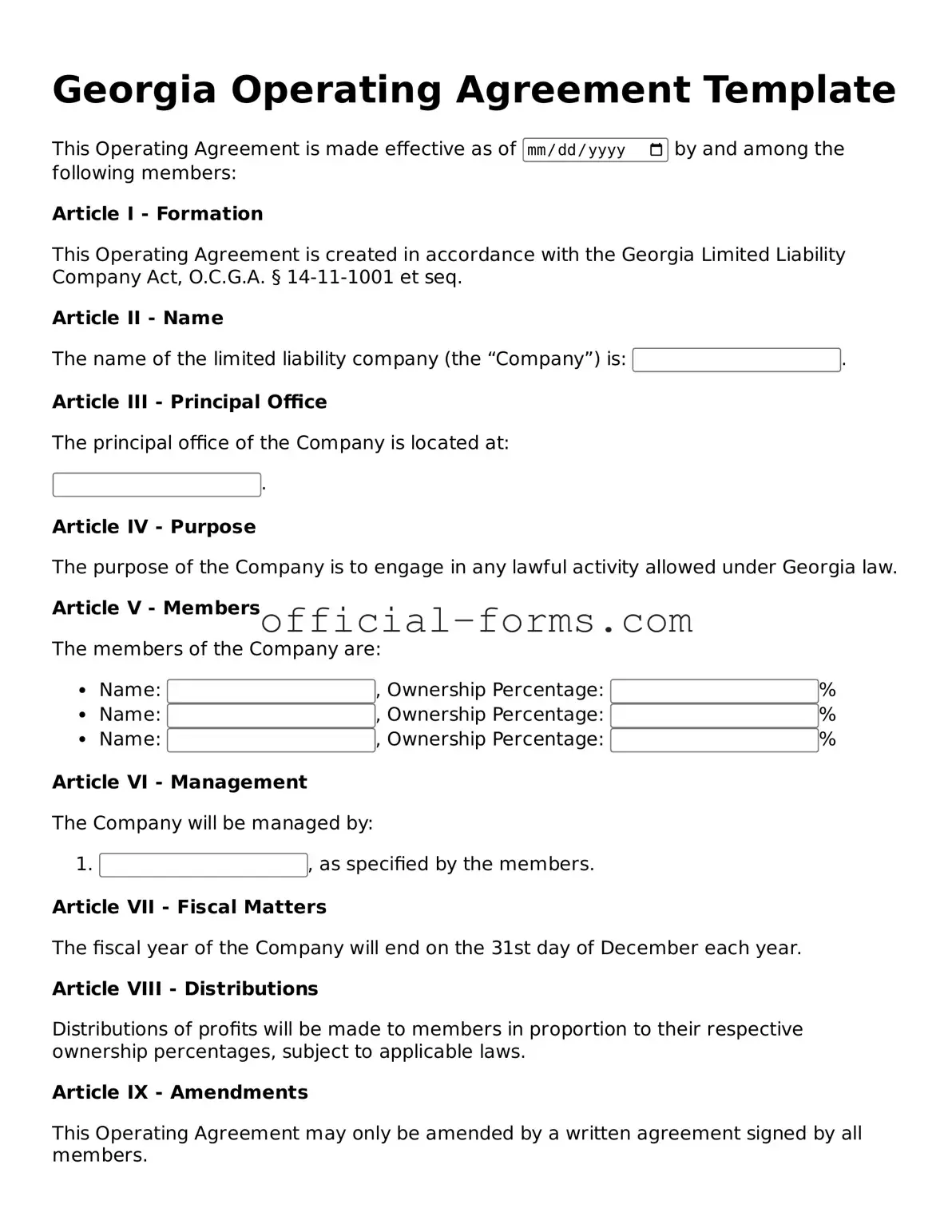Official Georgia Operating Agreement Document
The Georgia Operating Agreement form is a legal document that outlines the management structure and operational procedures of a limited liability company (LLC) in Georgia. This agreement serves as a crucial framework for the members of the LLC, detailing their rights, responsibilities, and the distribution of profits. By establishing clear guidelines, the Operating Agreement helps prevent disputes and ensures smooth business operations.
Open My Operating Agreement Now

Official Georgia Operating Agreement Document
Open My Operating Agreement Now
Don’t leave your form incomplete
Finish Operating Agreement online quickly from start to download.
Open My Operating Agreement Now
or
➤ PDF
